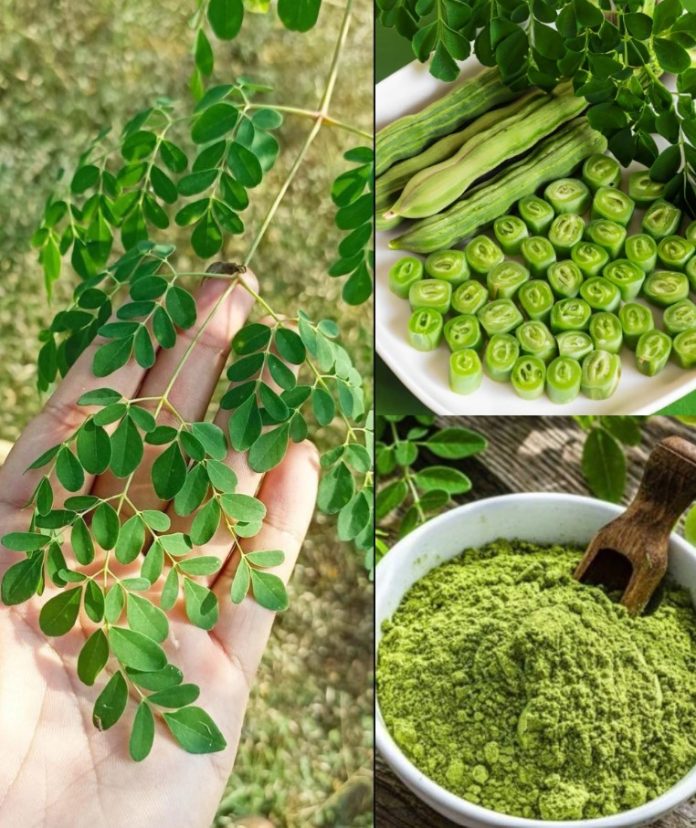Moringa, often referred to as the “Miracle Tree,” has earned its title due to its remarkable nutritional profile and numerous health benefits. Native to the foothills of the Himalayas, this plant has been an integral part of traditional medicine for centuries, particularly in regions of Asia and Africa. More recently, moringa has gained global recognition as a superfood, with researchers and health enthusiasts alike praising its potential to improve overall well-being.
Packed with essential vitamins, minerals, and antioxidants, this plant offers a natural way to boost immunity, improve digestion, and support heart health.
In this comprehensive guide, we will delve into the top ten health benefits of moringa and explore various ways to incorporate it into your daily routine. Whether you choose to consume it fresh, as a powder, or as a tea, unlocking the power of moringa can lead to significant health improvements. Let’s take a closer look at why this plant is hailed as a miracle of nature.
The Top 10 Health Benefits of Moringa
1. A Nutrient Powerhouse
Moringa is densely packed with essential vitamins and minerals, making it one of the most nutrient-rich plants on the planet. It contains high levels of vitamin A, vitamin C, vitamin E, calcium, potassium, and iron. In fact, gram for gram, moringa leaves contain more vitamin C than oranges, more calcium than milk, and more potassium than bananas. This makes it an excellent natural supplement to enhance overall health and vitality.
2. Rich in Antioxidants
Moringa is an excellent source of powerful antioxidants, such as quercetin, chlorogenic acid, and beta-carotene. These compounds help neutralize harmful free radicals in the body, reducing oxidative stress and lowering the risk of chronic diseases like cancer, diabetes, and heart disease. Consuming moringa regularly can also slow down the aging process by protecting cells from damage and promoting healthy skin.
3. Strengthens the Immune System
A strong immune system is crucial for fighting off infections and diseases. Moringa contains high levels of vitamin C and iron, both of which play a vital role in enhancing immunity. The plant’s antimicrobial and anti-inflammatory properties further aid in protecting the body against harmful pathogens, making it a valuable addition to any diet, especially during flu season.
4. Supports Heart Health
Moringa has been shown to have heart-protective properties by lowering cholesterol levels and regulating blood pressure. Its high antioxidant content helps reduce inflammation in the cardiovascular system, thereby decreasing the risk of heart disease and stroke. Additionally, the plant’s fiber content helps remove excess cholesterol from the bloodstream, promoting better circulation and heart function.
5. Promotes Digestive Health
With its high fiber content, moringa aids digestion and helps maintain a healthy gut. It acts as a natural detoxifier, flushing out toxins and promoting regular bowel movements. Moringa’s anti-inflammatory properties also help soothe digestive disorders such as bloating, constipation, and irritable bowel syndrome (IBS). Incorporating moringa into your diet can lead to improved gut health and better nutrient absorption.
6. Enhances Skin and Hair Health
Moringa is a beauty-enhancing superfood. Its high levels of vitamin E and antioxidants help nourish the skin, combat signs of aging, and promote collagen production. Whether applied topically or consumed as part of a balanced diet, moringa can help reduce acne, brighten the complexion, and hydrate the skin. It is also beneficial for hair health, strengthening the follicles and reducing hair fall.
7. Boosts Brain Function
Cognitive decline is a growing concern, but moringa’s neuroprotective properties can help keep the brain sharp. Rich in vitamin C and E, moringa helps prevent oxidative damage in the brain, which is linked to neurodegenerative diseases such as Alzheimer’s. Additionally, its anti-inflammatory and mood-enhancing properties may help reduce symptoms of depression and anxiety, improving overall mental clarity and focus.
8. Helps Regulate Blood Sugar Levels
Moringa has been found to lower blood sugar levels, making it particularly beneficial for individuals with diabetes or those at risk of developing the condition. The plant’s natural compounds help regulate insulin sensitivity and reduce blood sugar spikes after meals. Consuming moringa regularly can support long-term blood sugar balance and reduce the likelihood of diabetes-related complications.
9. Reduces Inflammation
Chronic inflammation is a leading cause of various diseases, including arthritis, obesity, and heart disease. Moringa contains potent anti-inflammatory compounds such as isothiocyanates, which help reduce swelling and pain in the body. Regular consumption can help manage inflammatory conditions and promote overall well-being.
10. Aids in Weight Management
If you’re looking to shed a few pounds, moringa can be a helpful ally. Its high fiber content aids digestion and promotes a feeling of fullness, reducing the likelihood of overeating. Additionally, moringa helps regulate blood sugar levels, preventing cravings and energy crashes. Adding moringa to a balanced diet can support weight loss and promote sustained energy levels throughout the day.
How to Use Moringa in Your Daily Routine
Fresh Moringa Leaves
Moringa leaves are the most nutritious part of the plant and can be used in a variety of dishes. You can add them to salads, soups, stews, or sauté them as a side dish. Their mild, slightly peppery flavor pairs well with garlic and olive oil.
Moringa Powder
Drying and grinding moringa leaves into a fine powder is a convenient way to store and use this superfood. Moringa powder can be added to smoothies, soups, sauces, and even baked goods. Just a teaspoon per day can provide a powerful nutrient boost.
Moringa Tea
Moringa tea is a simple and delicious way to enjoy the benefits of this plant. Steep fresh or dried leaves in hot water for five minutes and enjoy. You can enhance the flavor with honey and lemon for added benefits.
Moringa Pods (Drumsticks)
Moringa pods are often used in curries and soups. They can be cooked like green beans and are packed with fiber and essential nutrients.
Moringa Seeds
Moringa seeds, found inside the pods, can be eaten raw, roasted, or used to extract moringa oil, which is beneficial for cooking and skincare.
Conclusion :
Moringa truly lives up to its reputation as a “Miracle Tree.” With its impressive nutritional profile and wide-ranging health benefits, this plant is a must-have for anyone looking to enhance their overall well-being. Whether you incorporate it into your diet as fresh leaves, powder, tea, or oil, moringa offers a natural and effective way to boost immunity, improve digestion, and support heart and brain health.
By growing your own moringa or sourcing high-quality products, you can take full advantage of its powerful properties. Start small, experiment with different preparations, and soon, you’ll discover the best ways to make moringa a part of your daily wellness routine. Nature has provided us with a gift—let’s embrace it and enjoy the countless benefits of this miraculous plant!










